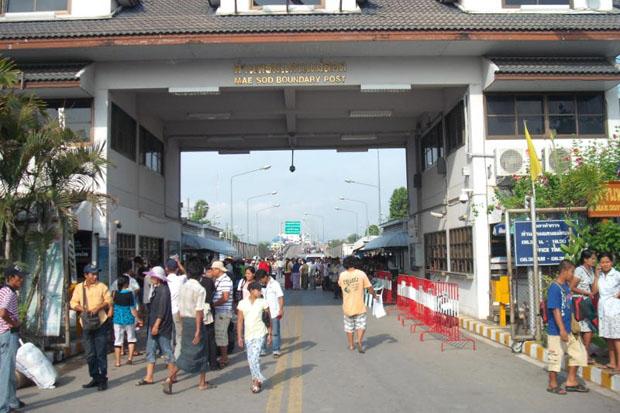Making trains locally ‘could save Thailand B100bn’
Buy domestic for new rail projects, govt told
Thailand could save up to 100 billion baht by manufacturing and assembling trains to serve its new railway projects, according to Ditsapon Padungkul, president of the Thailand Railway Engineering Association.
He said Thailand has the capacity to make the machinery and parts to serve planned rail-infrastructure including the Thai-Chinese high-speed railway from Bangkok to Nong Khai and the expansion of Bangkok’s electric train network. “Our studies have revealed Thailand is capable of manufacturing around 40% of the machines needed for these railway projects,” Mr Ditsapon told reporters at an event to introduce the 4th RAIL Asia Expo & RISE Symposium, running on March 28-29.
He urged the government to help nourish local manufacturing capacity and talent by including investors in rail projects to use locally made and assembled parts. “Doing so would decrease capital investment for maintenance costs by an initial 20%,” he added.
According to Mr Ditsapon, local engineers and auto manufacturing companies in Thailand have the capability to assemble and fix train carriages and locomotives.
Local auto manufacturing already has the advanced capacity to produce and assemble parts such as brakes, wheels and suspension systems for train systems, he added.
“However, the problem is that local manufacturing sectors has not been given enough time to prepare or produce staff to serve the expansion of railway infrastructure,” he said. Thailand might be major auto assembling hub. But in terms of rail systems, the country has solely relied on imports.
State Railway of Thailand (SRT) deputy governor Thanongsak Pongprasert said the country needs to procure 81 locomotives, 949 passenger carriages and 988 diesel trains to replace the old fleet that will gradually be decommissioned by 2027. To do this the SRT would need to spend 65 billion baht importing them, he said.
The government’s plan to construct 10 new electric train routes by 2036 also depends on foreign technology and know-how. Apart from investment in construction, rail expansion projects in Thailand have attracted countries with leading railways know-how such as Japan, China and Germany offering their products and services.
The MRT Pink and Yellow Lines would need 288 monorail carriages. According to Bangkok Mass Transit System Plc (BTSC) CEO Surapong Laoha-unya, this will cost around 25 billion baht.
The BTS Group has signed a deal with two Chinese companies to import 184 carriages for the Green Sukhumvit Line’s northern and southern extensions from Mor Chit-Saphan Mai-Khu Kot and Bearing-Samut Prakan. This will cost cost around 11 billion baht.
Mr Ditsapon said railway expansion has been dominated by investment and technology provided by foreign firms. So far, 70 companies have shown an interest in investing in railway projects. “Relying too heavily on foreign manufacturing and assembly will only discourage us from learning how to do it ourselves,” said Mr Ditsapon.
Source: https://www.bangkokpost.com/news/general/1424226/making-trains-locally-could
